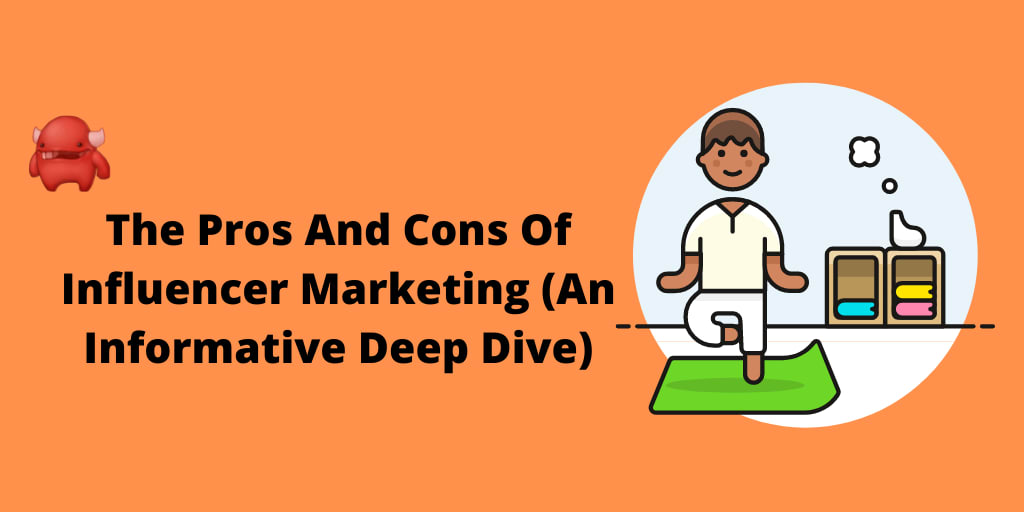"The Pros and Cons of Influencer Marketing: Is It Worth the Hype?"
"Exploring the Benefits and Risks of Collaborating with Influencers for Your Brand's Marketing Strategy"

Influencer marketing is a type of marketing where businesses collaborate with individuals who have a significant following on social media to promote their products or services. The influencer is usually compensated for their endorsement and promotion of the product, which can be in the form of a commission, flat fee, or free products. The popularity of influencer marketing has increased rapidly in recent years, with brands of all sizes investing in this marketing strategy to reach their target audience.
In this article, we will discuss the pros and cons of influencer marketing to help you understand the potential benefits and drawbacks of this marketing strategy.
Pros of Influencer Marketing:
Increases brand awareness and credibility:
Influencer marketing can help businesses increase their brand awareness and credibility by partnering with influencers who are well-known and respected in their niche. This helps businesses reach a wider audience and establish trust with potential customers.
Builds trust and loyalty:
Influencers have built a strong relationships with their followers, and their endorsement can help businesses build trust and loyalty with their audience. When an influencer promotes a product, their followers perceive it as a recommendation from someone they trust, which can result in increased sales and customer loyalty.
Targeted audience:
Influencers have a specific niche audience, and businesses can collaborate with influencers whose followers match their target audience. This ensures that businesses reach the right people with their marketing efforts, resulting in better conversion rates.
Cost-effective:
Influencer marketing can be more cost-effective than traditional marketing strategies, such as TV commercials or print ads. Businesses can collaborate with micro-influencers who have a smaller following but offer a higher engagement rate at a lower cost.
Measurable ROI:
Influencer marketing provides businesses with measurable ROI through metrics such as engagement rate, reach, and conversions. This helps businesses track the effectiveness of their marketing efforts and adjust their strategy accordingly.
Diversification of marketing channels:
Influencer marketing allows businesses to diversify their marketing channels and reach their target audience through a variety of social media platforms. This helps businesses reach a wider audience and increase their brand awareness.
Cons of Influencer Marketing:
Risk of fraud:
The increasing popularity of influencer marketing has led to an increase in fraudulent activities, such as buying followers or engagement. This can result in businesses partnering with influencers who do not have a genuine following, resulting in a waste of time and resources.
Lack of control:
Influencers have their own creative freedom and may not align with the brand's values or messaging. This can result in a loss of control for businesses over their marketing efforts, leading to an ineffective campaign.
Difficulty in measuring ROI:
While influencer marketing provides measurable ROI, it can be difficult to attribute sales directly to the influencer's promotion. This can make it challenging for businesses to determine the effectiveness of their influencer marketing campaigns.
Dependence on influencers:
Influencer marketing relies heavily on the influencer's popularity and credibility. If the influencer's reputation is damaged, it can negatively impact the brand's image.
Legal compliance:
Influencer marketing is subject to legal compliance, and businesses need to ensure that influencers disclose their partnerships with brands to their followers. Failure to comply with these regulations can result in legal consequences for businesses and influencers.
Saturation in the market:
As more and more businesses adopt influencer marketing, it can become saturated in the market, leading to a decrease in effectiveness. Consumers may become immune to influencer marketing efforts and ignore or distrust sponsored content.
Short-term results:
Influencer marketing can produce short-term results, but it may not have a long-term impact on a brand's overall marketing strategy. Businesses need to develop a comprehensive marketing strategy that includes influencer marketing as a part of their overall plan.
Conclusion:
Influencer marketing can be an effective marketing strategy for businesses looking to reach their target audience and increase brand awareness. However, it is important to understand the potential risks and limitations of influencer marketing to ensure a successful campaign. Businesses should carefully select their influencers, establish clear guidelines and messaging, and monitor the effectiveness of their campaigns to maximize their ROI. Additionally, businesses should not rely solely on influencer marketing and should develop a comprehensive marketing strategy that includes a variety of channels to reach





Comments
There are no comments for this story
Be the first to respond and start the conversation.